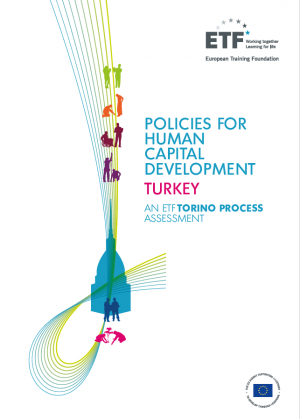This European Training Foundation (ETF) assessment provides an external, forward-looking analysis of the country's human capital development issues and VET policy responses from a lifelong learning perspective. It is based on evidence contained in Turkey's National Torino Process Report, which was compiled in 2019 using a standardised questionnaire (the National Reporting Framework – NRF) and additional information sources, including international analyses.
The report comes at the right time, as the Turkish Government has recently set ambitious goals to move from a middle-income to a high-income country and to enter the top-10 global economies. Policymakers are well aware that this can be only achieved if education and employment policies are able to transform and improve the country's human capital. The Education Vision 2023 aims to contribute to these goals and has set new priorities in all areas of education, including vocational education and training (VET).
However, despite the advanced level that Turkey's economy has already reached and the significant reforms that have taken place in education and training – with others still ongoing – substantial challenges in human capital development and use remain.
